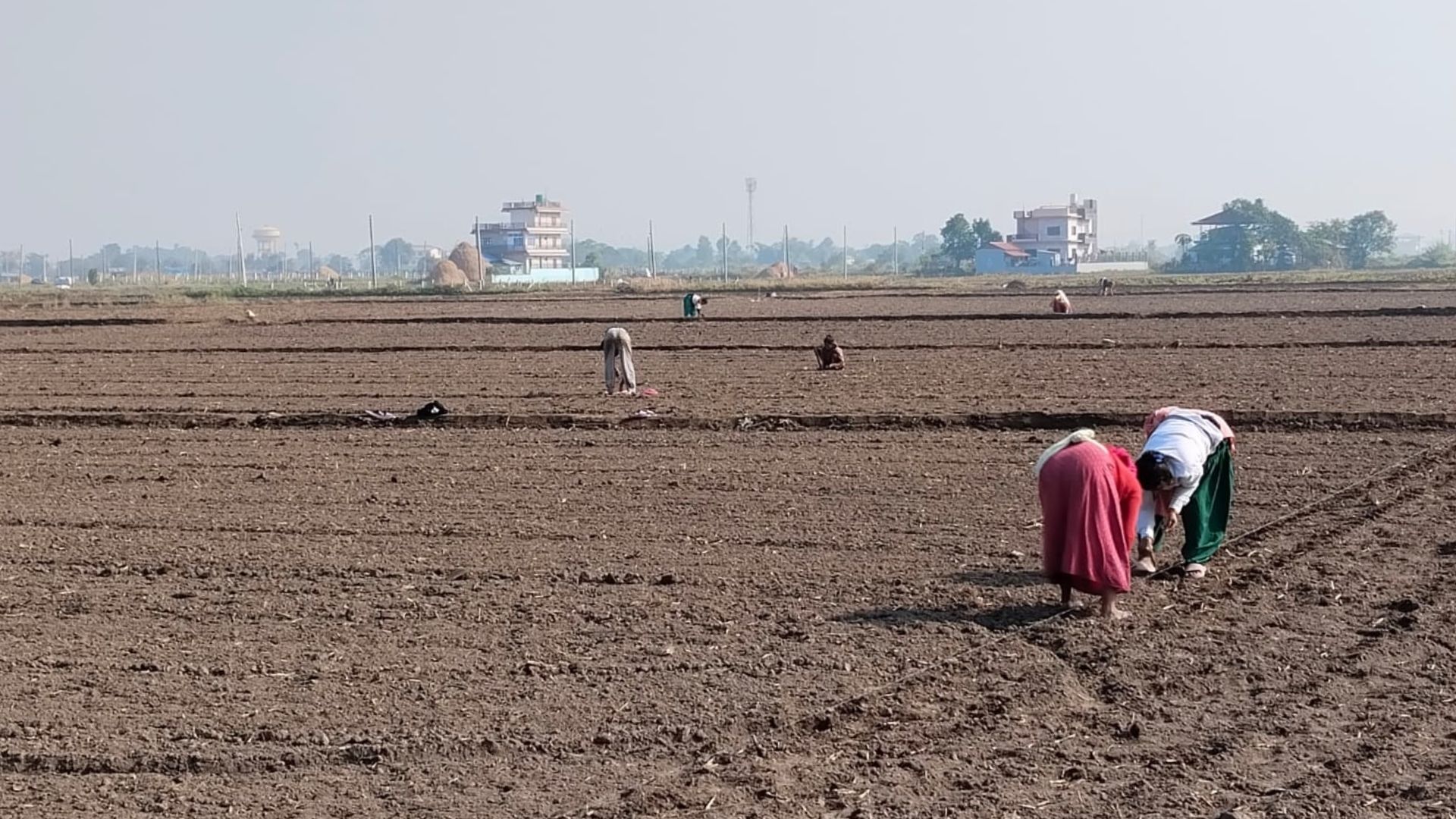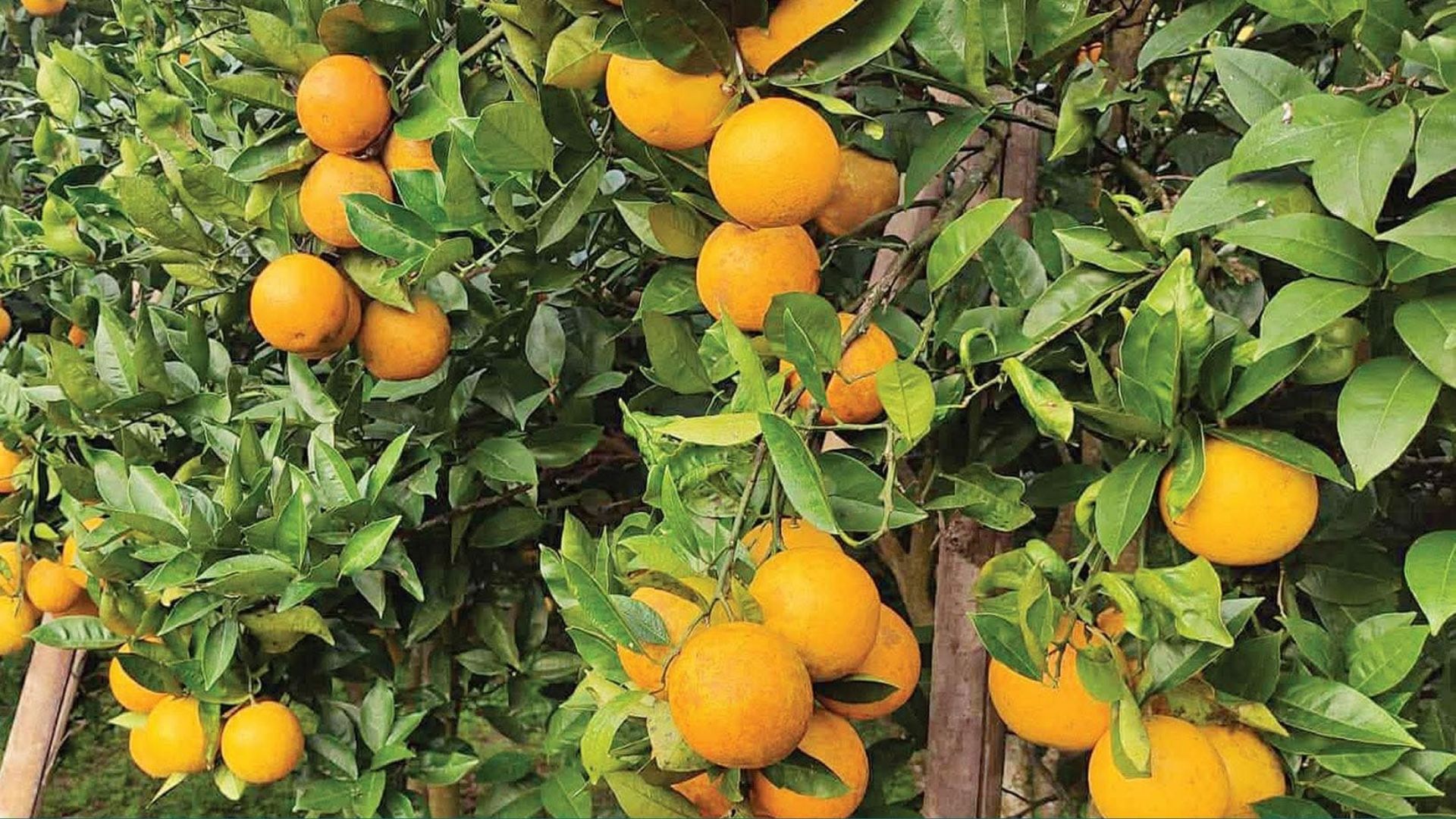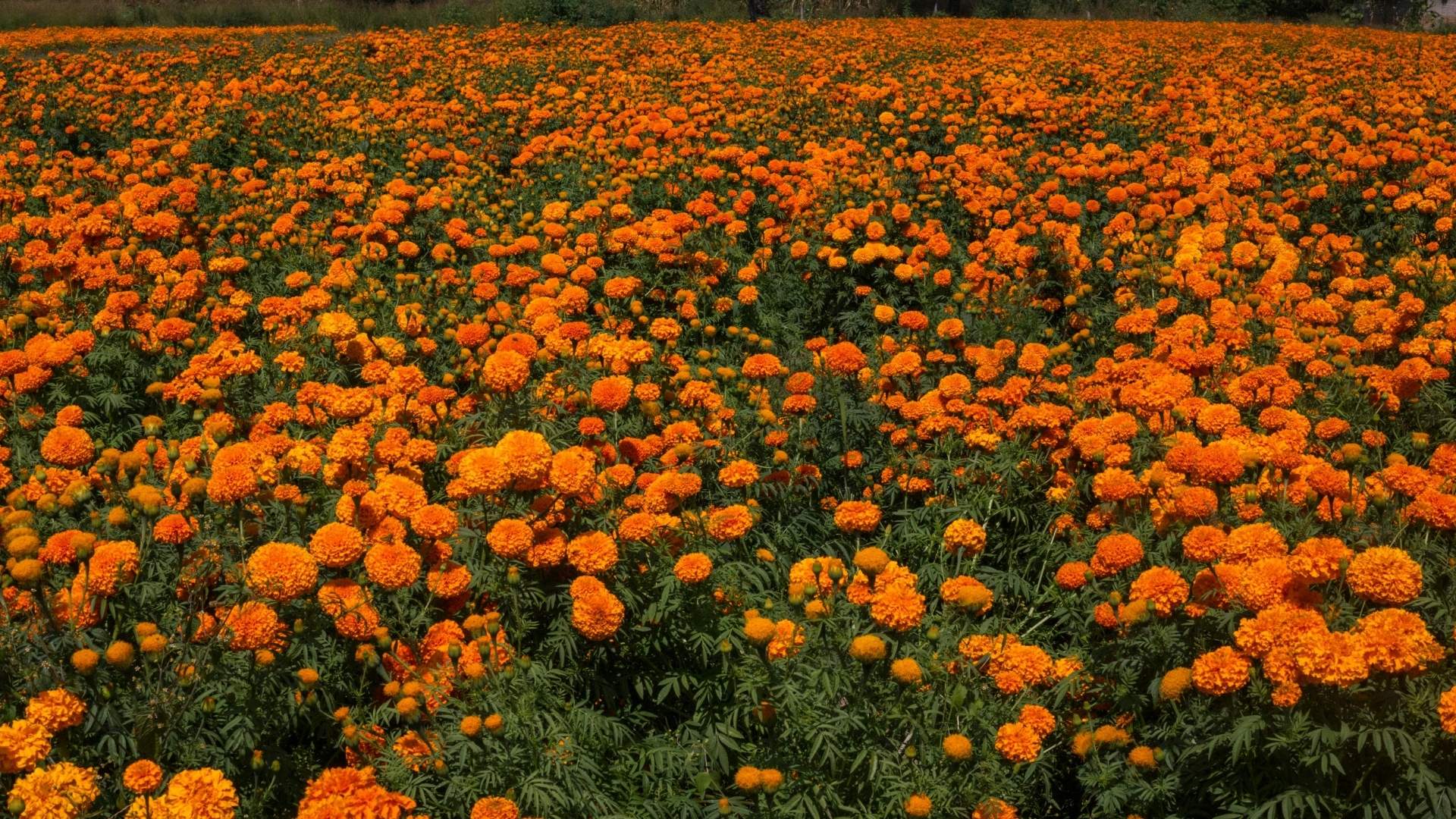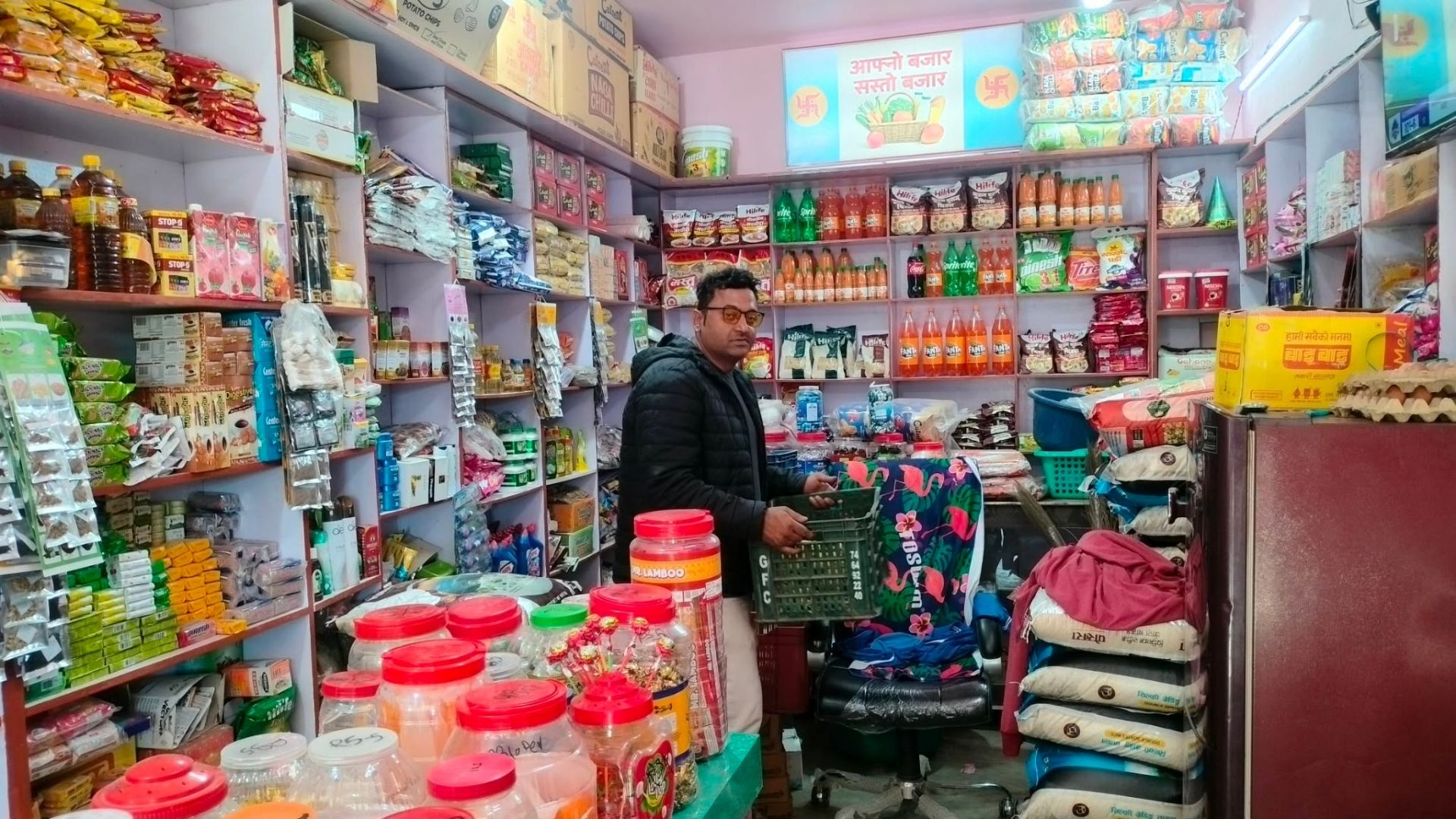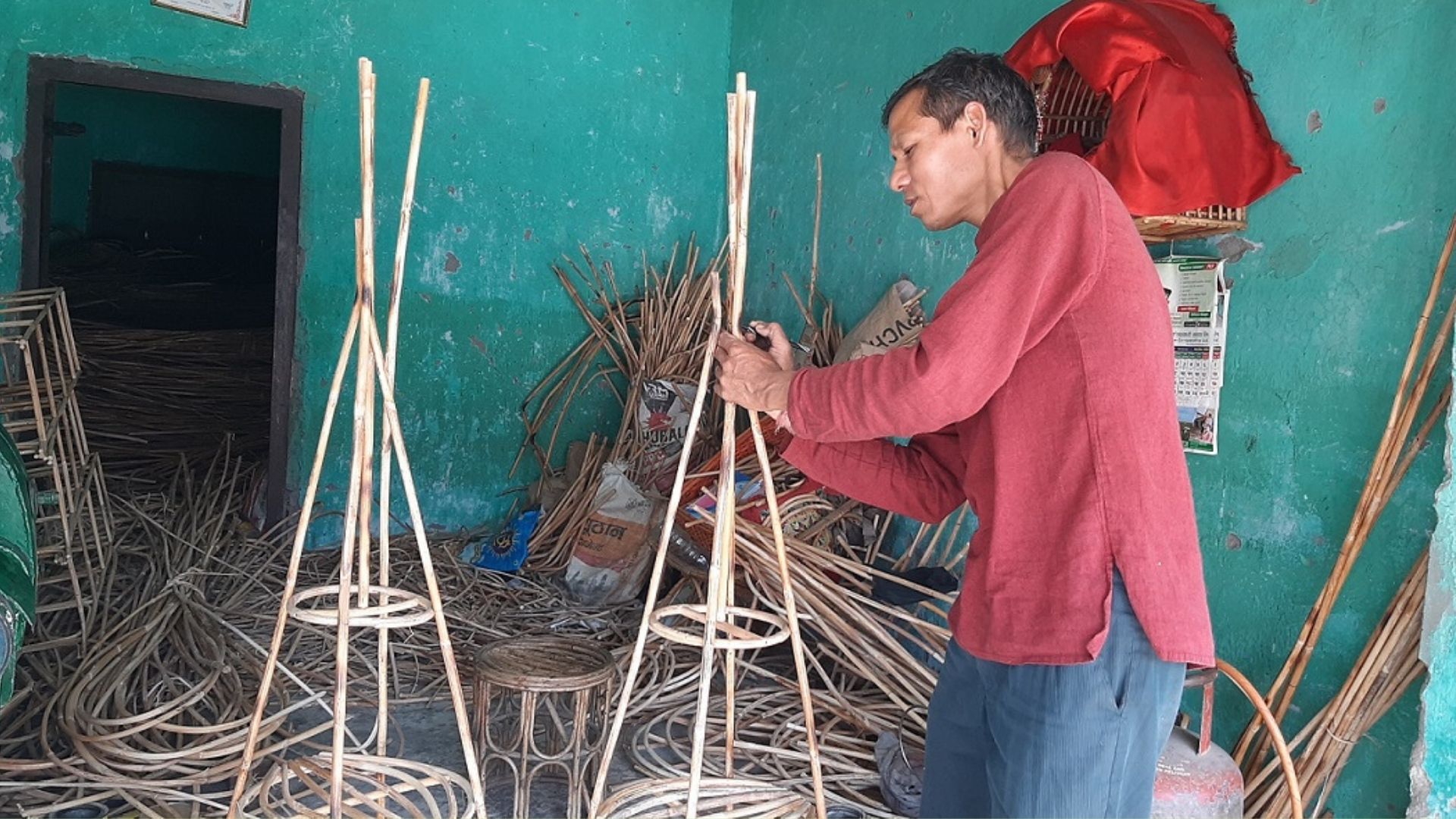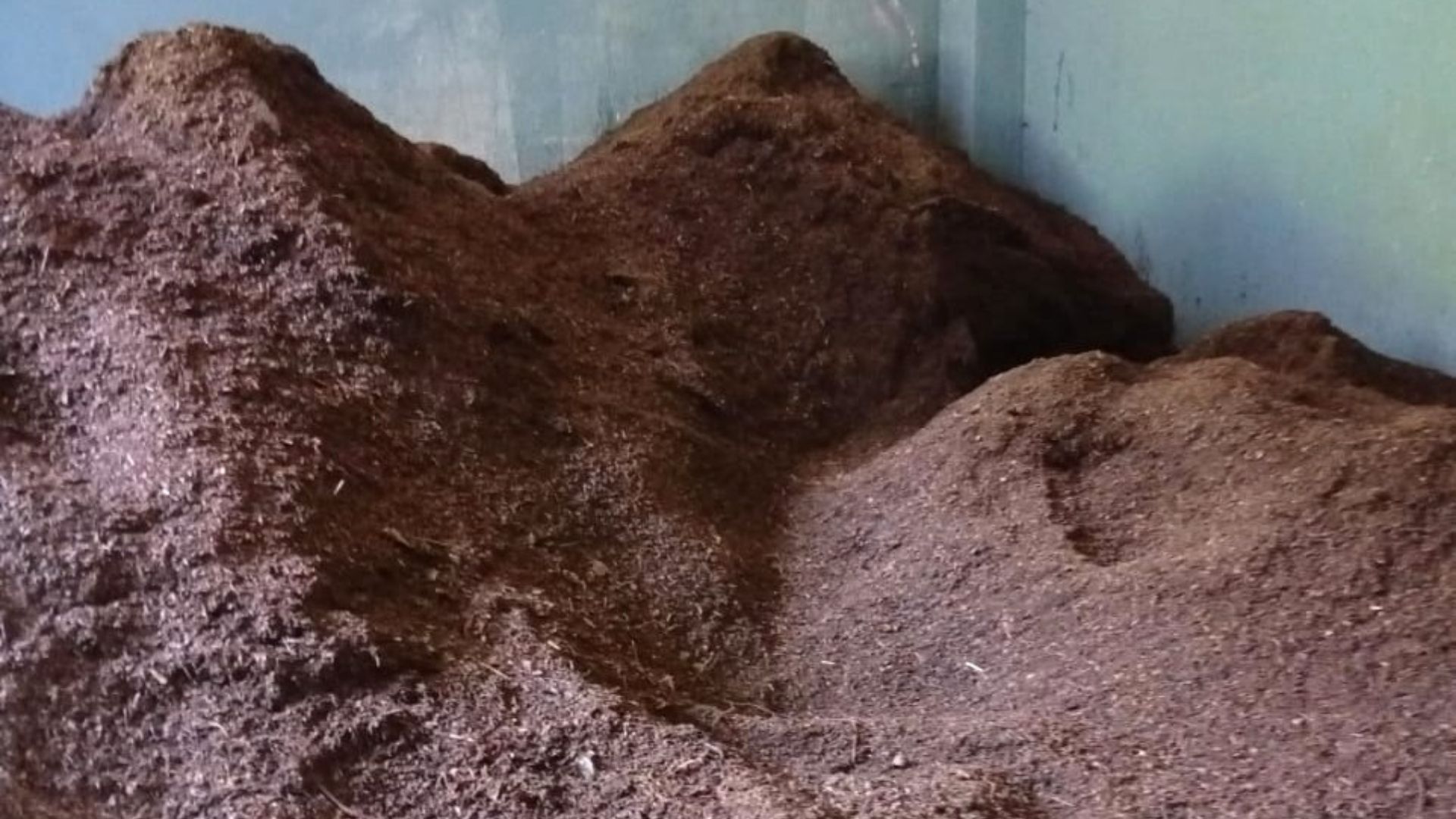Medicinal and Aromatic Plants (MAPs) are an important part of Nepal’s biodiversity, with over 1,700 species identified and around 100 of them traded commercially. MAPs-related industries account for at least 5% of Nepal’s GDP, says a 2018 World Bank study, including serving as a key source of income for rural communities, especially in high-hill and mountain regions.
Despite its potential, Nepal mostly exports raw or minimally processed herbs without adding value. These are often unbranded and sold in bulk, making them indistinct in the global market. Meanwhile, strong international demand for herbal products presents a largely untapped opportunity for Nepal to capitalize on—in processing, packaging, and branding herbal products like essential oils, teas, and cosmetics. However, the sector remains constrained by illegal exports of raw materials and a reliance on imported finished goods made from Nepal’s own herbal resources.
In response to these gaps and opportunities, local ventures like Desi Grub have emerged, aiming to process herbs domestically and deliver high-quality, value-added herbal products directly to consumers.
The story begins in October 2019 just before the COVID-19 pandemic. The Grub team participated in a local mela (fair) where they showcased their initial products: a herbal soup made from Sisnu (nettle), a herb known for its anti-cancer properties, and curry leaves powder. Their very first customer was none other than former Princess Himani Shah, whose encouraging words gave the team a strong boost of motivation to start producing their products more formally and professionally.
From December 2019, COVID-19 began to spread, eventually leading to a global lockdown. Neither Ayurveda nor modern science had a definitive remedy for the deadly disease. The crisis also exposed people’s lack of awareness surrounding the use of Ayurvedic ingredients into their daily lives. As a result, many consumed ginger, turmeric, black pepper powder, and cumin powder indiscriminately, without understanding their potential side effects.
According to Modi, this led to adverse effects like digestive issues, body heat imbalance, and even piles. In response, the team formulated an immunity-boosting tea—a precise blend of Harro (black- or chebulic myrobalan), Barro (Terminalia bellirica) , Amla (Emblic), Jethi Madhu (Licorice Root), and Gurjo root (Tinospora Cordifolia). They claim the formulation is safe for individuals ranging in age from 2 to 90. According to Modi, their team received positive feedback which encouraged them to formally register Desi Grub and officially launch it in 2021.

We started with an initial capital of one million rupees and just two products in hand, shares Modi. “The company now offers over 40 products, with a goal of expanding to over 100 products by the end of 2025.”
“Just as people in different regions have different physical strengths, herbs too are influenced by their origin,” he explains. That’s why, Desi Grub primarily source ingredients from the Himalayan region, partnering directly with local farmers as part of a team, and minimizing the role of middlemen to ensure quality and fairness.
This approach not only supports local farmers but also ensures the delivery of authentic, high-quality products. Sourcing directly from farmers in Humla and Jumla, the company relies on herbs that grow in high-altitude Himalayan climates—conditions that, according to Modi, produce more potent ingredients well-suited for people living in both the hills and the Terai.
Desi Grub distinguishes itself by going beyond product sales—it also educates their consumers. Every package lists ingredients and encourages customers to grow herbs in their own gardens. “This approach empowers consumers with knowledge and transparency,” says Modi.
Their best-selling product line includes over 10 varieties of herbal teas—free from chemicals, artificial colors, and preservatives. Floral teas like hibiscus, chamomile, blue pea, peppermint, thyme, and lemongrass are packaged sustainably, with clear labeling.
Functional products like lungs and liver detox teas are made from pipli (Long pepper), asuro (Malabar nut), kutuki (Picrorhiza kurroa), kirkut ringi (Ringo Rose), and stevia—targeted to boost immunity, detoxify the body, and support organ health.
Among the product range are Hemp Seed Oil and Hemp O Oil—where “O” stands for “Other” in which hemp serves as a base oil blended with other plant-based oils such as jangali lasoon (wild garlic), datelo , and Himalayan wild cherry oil.
Similarly, Hemp Seed Oil, free from THC and made through cold pressing, offers a perfect 1:3 omega fatty acid ratio, all nine essential amino acids, and is known for mental health, heart health, and skincare benefits, Modi claims about his products.
According to Modi, Hemp O is a newly formulated oil designed specifically for pain relief. “Unlike regular massage oils, our formulation is effective in small doses, making it sustainable and economical.”
“This reflects one of our key unique selling points (USPs)—their products are designed to be highly effective even in small quantities, meaning customers don’t need to consume or apply large amounts”, Modi further explains. “It’s not just about results, but making wellness accessible and affordable.”
Desi Grub’s journey hasn’t been without hurdles. Acquiring certifications and licenses was challenging as the government processes were time-consuming and involved a lot of bureaucratic hurdles, shared Modi.
“Some of the machinery that the government uses for product testing works well. Others did not meet the required standards, which delayed the certification process. While private institutions offer quicker services, they are often too expensive.”
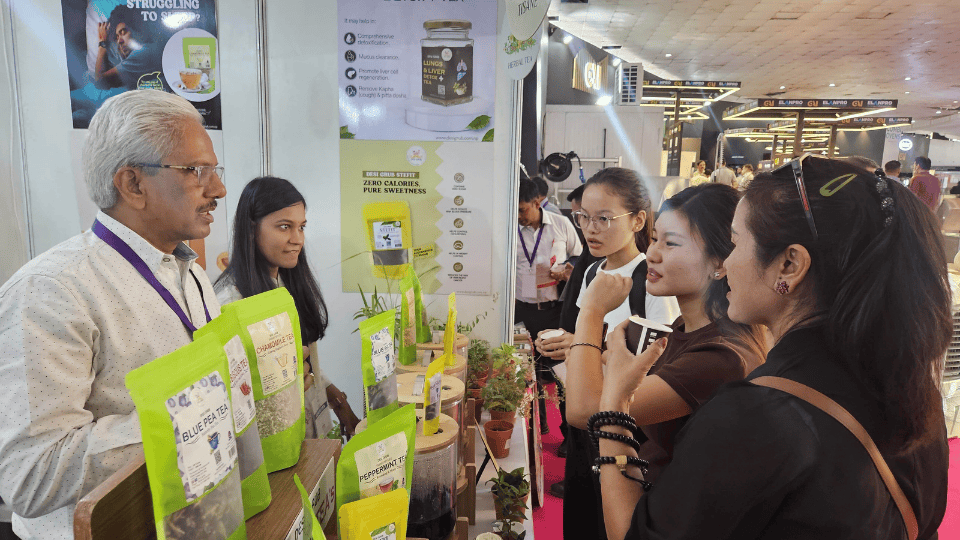
In this regard, Modi calls for the enforcement of supportive regulations and a streamlined certification process to empower local producers and boost the country’s share in the global herbal market.
Another challenge is the country’s transportation infrastructure, which poses a logistical challenge, since most of the raw materials are sourced directly from the geographically challenging regions such as Humla and Jumla that relies solely on air travel. With many suppliers unregistered under PAN or VAT, documentation becomes complex, adds Modi.
According to Modi, they make no compromise on nutrition or quality, and use food grade and glass packaging sourced from India to maintain freshness and safety. However, this adds to the production cost, along with high transport costs—compelling the company to maintain smaller margins. For instance, 60 grams of herbal tea, which yields around 100 cups, is priced affordably at NRs 600. To this, Modi shares, “Our goal isn’t solely profits—but teaching people the true value of herbs.”
Their management embraces the Japanese philosophy of Kaizen—continuous improvement—and follows a model of organic growth. They believe in growing slowly yet steadily, focusing on long-term sustainability, quality, and meaningful impact rather than growing rapidly.
“Reinvesting profits into research and development, aiming to launch at least two new products every month, this consistent innovation helps the team to grow sustainably and stay relevant in the market”, adds Modi.
Apart from hemp oil and teas, desi grub also boasts a range of products under their portfolio—Apricot Seed Oil, Facial Elixirs and Herbal Oils, Navatta Hair Oil, Roll-On Remedies, Clean Air Elixir, and Ayurvedic Massage Oils.
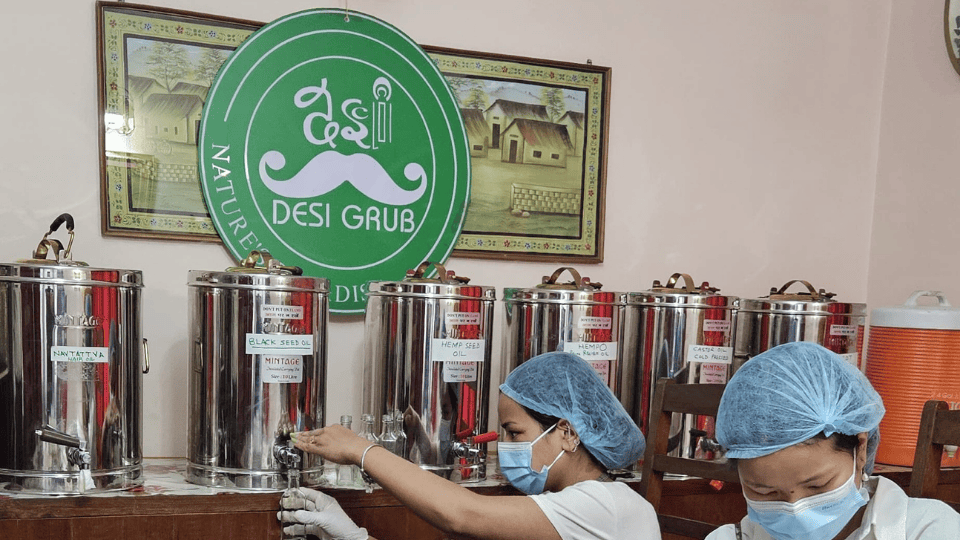
From half to ten million rupees sales in four years
Within four years of its operations, desi grub has made a great stride in their annual sales — from NRs 500,000 to over ten million rupees. They have now set an ambitious target for 150 million rupees in the next 3 to 5 years.
For this, the company has export plans next year after completing certifications and lab tests from India to ensure compliance with international standards. They are also investing in infrastructure—oil processing units, grinding machinery, and packaging equipment to scale up while preserving quality.







